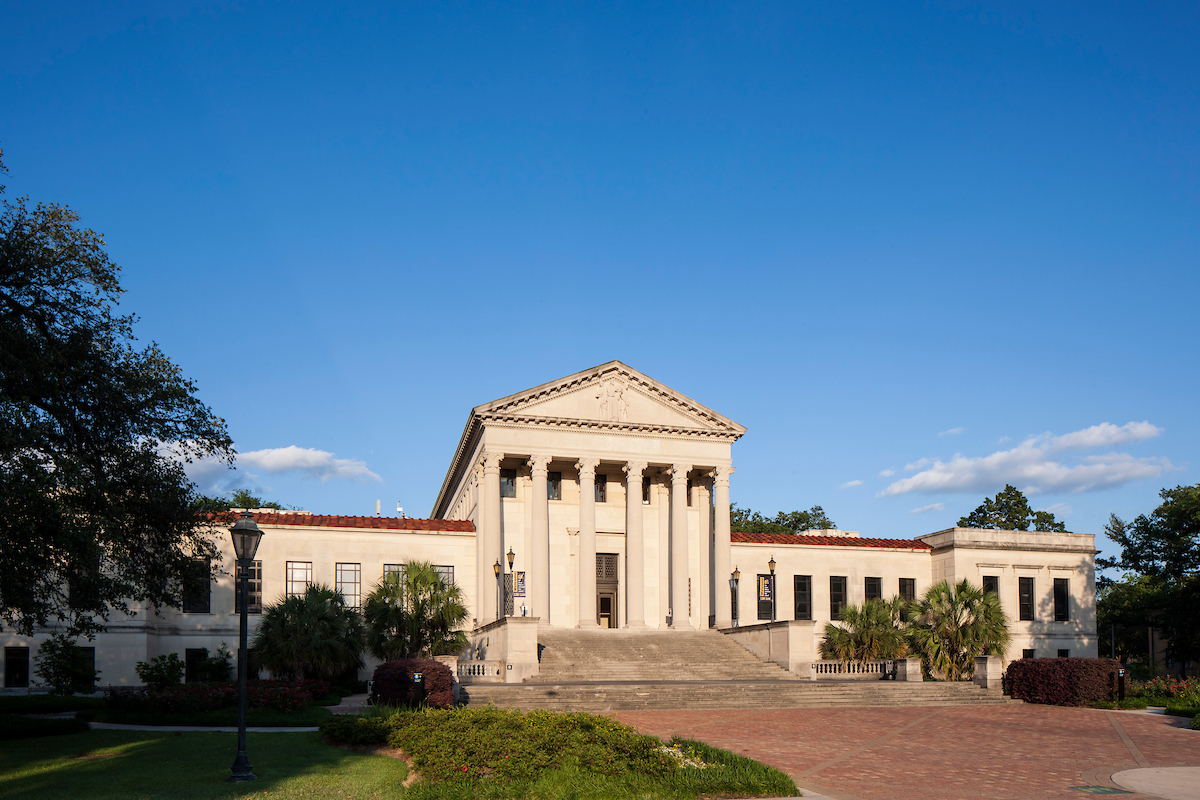LSU Cyber AI Team Supports $25 Million National Defense and Energy Project
The National Nuclear Security Administration, part of the U.S. Department of Energy, has awarded $50 million in cooperative agreements to only two university consortia to support nuclear security and nonproliferation. LSU researchers will work with colleagues at 15 universities and eight national labs to develop AI models to protect the nation from nuclear threats while training a new generation of data science, cyber and AI experts.

LSU’s James Ghawaly, principal investigator on the project and assistant professor of computer science and engineering, and Golden G. Richard III, professor of computer science and engineering and director of the LSU Cyber Center, both with joint appointments in the LSU Center for Computation & Technology, are part of a national research team led by the University of Tennessee, Knoxville, called the Enabling Capabilities in Technology Consortium. Leading the project’s data science component, Ghawaly and Richard will support U.S. nuclear security missions and educate highly talented cyber and data science professionals with AI skill sets who can pursue careers in the Department of Energy’s national labs.
“With the strong cyber focus we have here at LSU, we will be able to look at signals people haven’t been looking at that hard, like radiofrequency emissions and other digital signatures that can help fingerprint and track threats that could be transporting lost or smuggled nuclear or radiological material,” Ghawaly said. “This is in addition to the sensors most often used, such as radiation detectors, cameras and LiDAR.”
Ghawaly is developing foundational AI models to make sense of these multimodal data, to find patterns and create unique fingerprints.
“After you've detected a threat, you want to be able to track it in a very busy environment with a low signal-noise ratio,” Ghawaly said.
The broader research thrusts of the Enabling Capabilities in Technology Consortium include fundamental science in earth, environmental, atmospheric and space science, as well as radio and nuclear chemistry and applied science and engineering in areas of nuclear chemical engineering, advanced nuclear fuel systems engineering and reactor systems engineering.
Connecting these thrusts are three cross-cutting areas: detection, characterization and response methodologies and tools; data science for nuclear nonproliferation; and education and training.
“Advances in global security, clean energy and artificial intelligence are especially critical to our nation and our world at this time,” said Jason Hayward, professor of nuclear engineering at University of Tennessee, Knoxville and director of the consortium. “Our efforts will help produce the new knowledge and diverse talented workforce necessary to enable the U.S. and its allies to safely and securely triple nuclear power output throughout the world by 2050.”
Other schools in the consortium are Colorado School of Mines; Air Force Institute of Technology; Clemson University; University of California, Santa Barbara; University of Hawaii; the Massachusetts Institute of Technology; North Carolina State University; the University of Oklahoma; Oregon State University; Texas A&M University; the University of Texas at San Antonio; University of Utah, and Virginia Polytechnic Institute and State University.
The eight national laboratories involved are Idaho National Laboratory; Lawrence Berkeley National Laboratory; Lawrence Livermore National Laboratory; Los Alamos National Laboratory; Oak Ridge National Laboratory; Pacific Northwest National Laboratory; Sandia National Laboratories; and Savannah River National Laboratory.
Read more:
Latest LSU News
- LSU Law Announces Leadership TransitionThe LSU and LSU Law communities collectively are expressing their immense gratitude to LSU Law Dean Alena M. Allen for her visionary leadership, steadfast commitment, and remarkable accomplishments as she embarks upon the final academic year of her impressive tenure. Dean Allen is planning to join the faculty of the LSU Paul M. Hebert Law Center full-time at the conclusion of this academic year.
- Board of Supervisors Announces Presidential Search CommitteeLSU Board of Supervisors Chairman Scott Ballard announces the 2025 Presidential Search Committee.
- Krista Raney to Succeed Rob Stuart as President & CEO of the LSU Foundation Effective July 1, 2026The LSU Foundation Board of Directors has named Krista Raney to the role of president and CEO of the LSU Foundation effective July 1, 2026. Raney will succeed Robert M. Stuart Jr., who has served in the role since January 1, 2020.
- Matt Lee to Serve as Interim LSU PresidentBeginning July 1, Vice President for Agriculture and Dean Matt Lee will serve as LSU's interim president. Lee's visionary leadership for both the LSU AgCenter and College of Agriculture makes him an ideal fit to lead LSU while the search for a new president is underway.
- LSU President William F. Tate IV Accepts Presidency at Rutgers UniversityLSU President William F. Tate IV announced Monday that he has accepted the role of president at Rutgers University and will conclude his service at LSU on June 30, 2025.
- Trey Jones Named LSU Vice President of Legal Affairs and General CounselCarlton "Trey" Jones, III has been named Vice President of Legal Affairs and General Counsel. A seasoned legal professional and proud LSU alumnus, Jones brings over two decades of experience in higher education law, litigation, and institutional governance to the university's executive leadership team.










